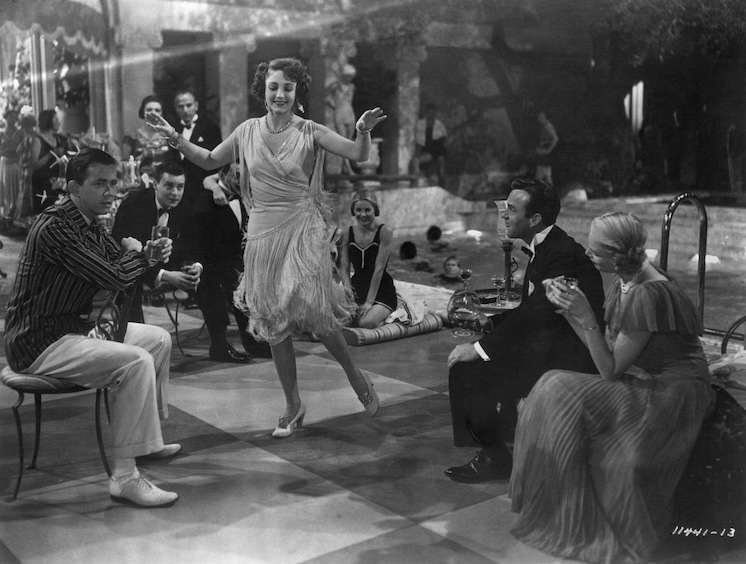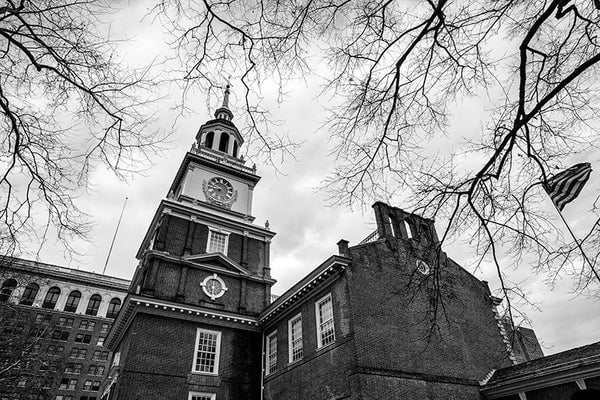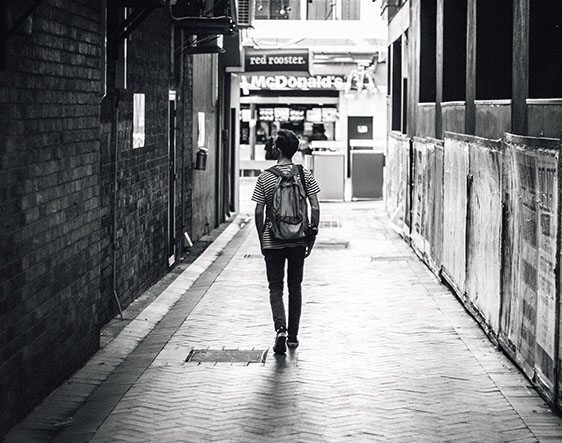Sunday Morning / January 28, 2024
The World Health Organization (WHO) has declared a global health threat. “The mortality effects of loneliness are equivalent to smoking 15 cigarettes a day,” says U.S. Surgeon General Dr. Vivek Murthy, who led the WHO's Commission on Social Connection. Murthy explains:
Anyone, anywhere, can be lonely or socially isolated. Across all ages and regions, loneliness and social isolation have serious impacts on our physical and mental health, and the well-being of our communities and society.
It was Gallup and Meta’s recent report on the “State of Social Connections” across 142 countries that concluded 1/4 of the world’s population are lonely: men and women equally so; adults 65+ surprisingly less so; with upwards of 27% of young adults ages 19-29 describing themselves as being “very lonely;” and 73% report feeling alone “often or always.”
While the impact of loneliness on the individual can include: anxiety, depression, dementia, cardiovascular disease, stroke and suicide, loneliness can also trend within a larger community. Our safety, prosperity, and quality of life are contingent upon the social connections we make at home, work, and civil society.
Why the hyperconnected Generation Z feels so disconnected is the prescient warning of our time.
Generation Z
While Baby Boomers are playing catch up with their digital skills, Gen Z and Alpha — those who’ve never known life without the internet — often bypass and circumvent basic social skills with technology. They spend 6+ hours per day on their phones with news, reviews and social media: curating their online personas, culling followers, and voraciously consuming media.
Hunter-Gatherers were the first producers in the cradles of civilization, until agriculture and irrigation practices required they gather together and settle into urban communities. The Sumerians established the world’s first and oldest city-state in Sumer, (c.4500 – c.1900 BCE).
Yet since the Third Industrial Revolution, the internet and digital interactions began changing human-to-human (H2H) connections. To wit, if the average life expectancy is 79.5 years old in the U.K., the average Brit can expect to spend a little more than 1 full calendar year in the loo; 2.5 years at the movies; nearly 4 years in school; 5 standing in queues; 6 full years eating; 10+ years working; 21 years online; and 26 years asleep over the course of their lifetime. Approximately 2.5 years remains for social connections.
While the Global State of Social Connections report (2024–2026) aims to “call out a global public health priority; propose a global agenda on social connection; work with high-level commissioners to make the case for action; and marshal support to scale up proven solutions and measure progress over the next three years” its at least worth considering why. According to the Center for Disease Control, Social Connectedness occurs:
When you feel like you belong and have the support and care you need, as well as the number, quality, and diversity of relationships that you want.
Since traditional institutions that once promoted a sense of belonging are in decline, Gen-Z are coming of age during an time of social disruption. According to Gallup, fewer than 40% of U.S. adults say they attended worship services at a church, synagogue, mosque or temple in 2023. According to the National Marriage Project, almost 90% of the world's population now live in countries with falling marriage rates.
Perusing the personals ads for community can transform reality into a metaphysical conundrum. The average user swipes 50 to 100 candidates per day, yet reports feeling “less satisfied and more depressed,” according to WHO. Overstimulated and under-socialized, the proliferation of large language models (LLMs) and the arrival of AI girlfriends and boyfriends means Gen Z co-mingles with machines.
When they go to the supermarket, machines scan their items sans a hello, goodbye or thank you. Delivery services often drop off their shopping and meals. They work from home via digital screens, and the disappearance of third places—a social space separate from work and home—exacerbates the problem. Youth culture has a rich history of collaboration in cafes, libraries, clubs, parks and community centers. Yet Gen Z feels priced out of the physical experience such as buying their first home and settling down. A virtual experience has become their vessel for self-expression in an increasingly inaccessible physical world.
Maybe Roblox, Fortnight and Minecraft are the new World Cup, Super Bowl and Summer Olympics but heres the catch. Gen Z aren’t experiencing it collectively. Even advertisements once used to unite the popular culture have been replaced by web cookies which stalk, track, and personalize their online experience.
Third Places
In sociology, the Third Place refers to the social surroundings that are separate from the two principal social environments of home (First Place) and the workplace (Second Place). Church, libraries, parks and bookstores once thrived as Third Places in a way that democratized civic engagement and society. Ray Oldenburg observes in “The Great Good Place:”
The development of an informal public life depends upon people finding and enjoying one another outside the cash nexus.
In 2023, OpenTable revealed that around half of all remote workers spend a portion of their day in cafes, restaurants and other Third Places. A particularly popular trend among Gen Z, around 25% consider a 'Third Space' their preferred location to work.

The Lost Generation
London tabloids called them “Bright Young Things,” referring to the 19-29 year olds during the 1920s. Like the Lost Generation, Generation Z inherits a society thats more tech savvy, consumerist, socially conscious and media-saturated than their predecessors.
The Industrial Revolution created unprecedented wealth and technology which enabled the Lost Generation to question society’s traditional values in the Café Society, Jazz Age, and Salons of Paris. Hemingway called them “disoriented, wandering and directionless” but history drew it milder. Gertrude Stein observes:
Disillusioned by World War I, the Lost Generation inherited values that were no longer relevant in the postwar world.
The world economic forum reports that Paris is planning to become a 15-minute city where everything is within a 15-minute radius on foot or bike. Although the primary aim is to cut CO2 emissions and produce cleaner air, God, as always, is in the details.
The City of Light had been a cradle of discontent and revolution before the French Emperor Napoleon III commissioned Haussmann's renovation of Paris. The demolition of medieval neighborhoods; the building of wide avenues; new construction of parks and squares; and the annexation of suburbs, street plans and the distinctive appearance of Paris today are Haussmann's renovations.
Walkable, mixed-use main streets and town centers are some of the answers that suburban and mid-sized city leaders are implementing today. Municipal ordinance that relax the minimum parking and setback standards, and a form-based code that controls building design rather than usage paves the way for green space, pop-up food trucks, markets, outdoor fitness and recreation, charitable drives, volunteer opportunities, art installations, exhibits and entertainment.
Once the glue that held communities together, social connectedness has and continues to rely upon neutral ground, a leveling place, a Third Place.
Return to Normalcy
President Warren G. Harding’s “Return to Normalcy” campaign slogan in 1920 sought to reset deregulation, and reject idealism in favor of the de facto foreign policy of the United States — Isolationism. Unwittingly, Joe Biden misused the slogan in 2020, instead invoking a promise to end the "divisiveness of the Trump years.”
But the republics had been designed by their founding fathers for rigorous debate at first, second, and third places. Where from the Lyceum to Les Halles and Independence Hall, civil society and democracy have and continue to find their sense of place.

Independence Hall








